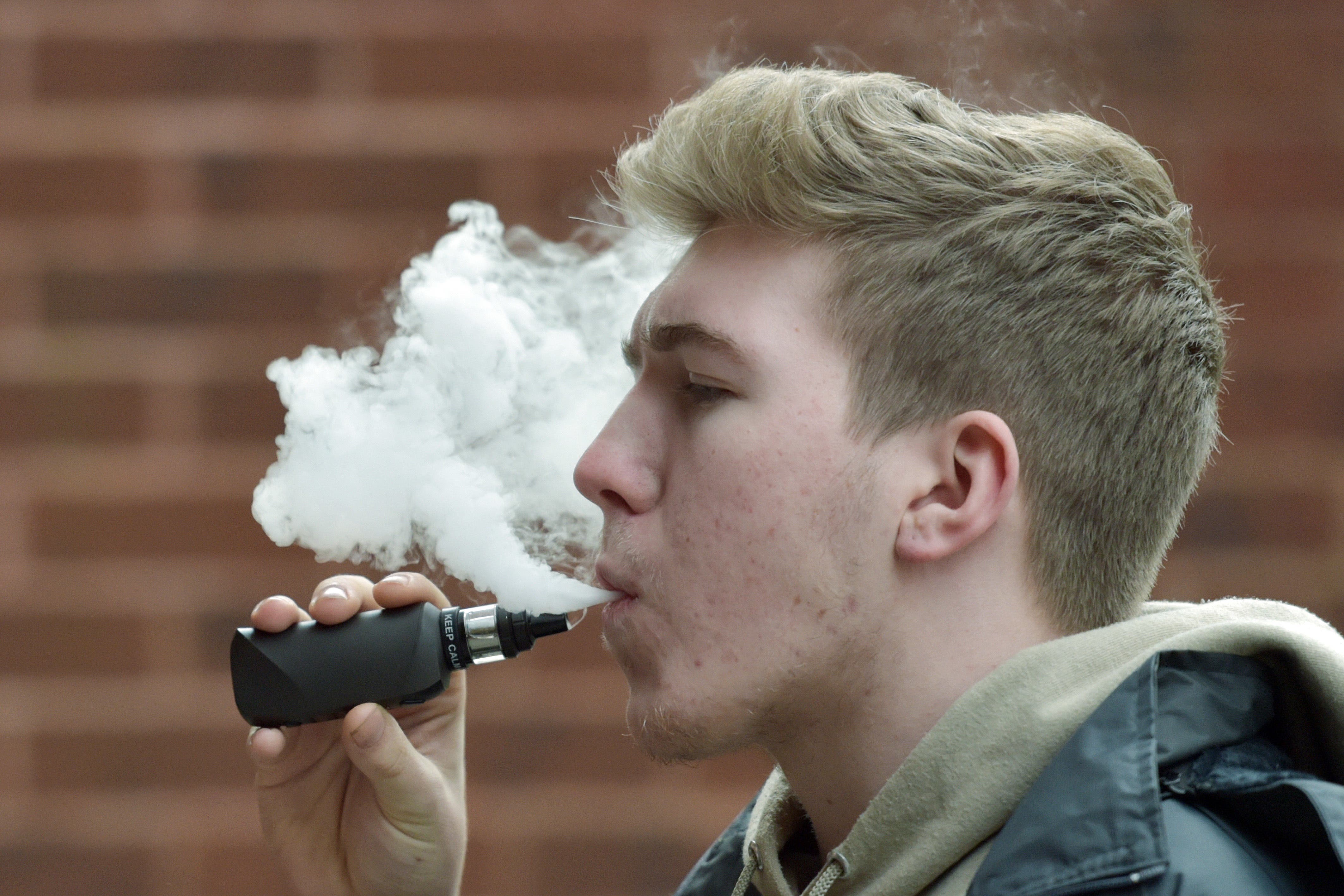Researchers call for complete ban on vape advertising
A study found exposure to advertising, past tobacco use, high incomes and having friends or family who vaped all influenced youngsters.

Your support helps us to tell the story
From reproductive rights to climate change to Big Tech, The Independent is on the ground when the story is developing. Whether it's investigating the financials of Elon Musk's pro-Trump PAC or producing our latest documentary, 'The A Word', which shines a light on the American women fighting for reproductive rights, we know how important it is to parse out the facts from the messaging.
At such a critical moment in US history, we need reporters on the ground. Your donation allows us to keep sending journalists to speak to both sides of the story.
The Independent is trusted by Americans across the entire political spectrum. And unlike many other quality news outlets, we choose not to lock Americans out of our reporting and analysis with paywalls. We believe quality journalism should be available to everyone, paid for by those who can afford it.
Your support makes all the difference.A medical research institute has called for a complete ban on e-cigarette advertising in the UK after a study found young people are susceptible to taking up vaping.
The George Institute carried out a global survey, which included some children in the UK, and found four factors influenced the likelihood they might vape – exposure to advertising, past tobacco use, high incomes and having friends or family who vaped.
The poll of 4,007 young people aged 15 to 30 was carried out in the UK, India, China and Australia.
Overall, 1,589 people who had never vaped were assessed for susceptibility to using e-cigarettes, with questions on curiosity, intentions to vape in the next 12 months and whether they would take an e-cigarette from a friend.
Some 333 people in the UK were included, with 55% indicating they were curious about vaping and 50% saying they would use an e-cigarette if offered by a friend.
A complete ban on e-cigarette advertising should be considered, as it is clearly influencing young people’s attitudes towards these addictive and potentially harmful products.
Of those in the UK, 63% had seen e-cigarette advertising compared to 51% in China, 47% in India and 30% in Australia.
The results also showed young people in the UK were less likely to believe vaping is addictive (74%) or harmful (67%), compared to those in Australia (87% and 83% respectively), where susceptibility was lowest.
Professor Simone Pettigrew, lead author and programme director of health promotion and behaviour change at The George Institute, said: “These findings suggest that an overwhelming number of young people may be at risk of e-cigarette use in the UK and in other countries.
“While some types of promotion of these products is prohibited, advertising on posters, billboards, and buses is still prevalent in the UK.
“A complete ban on e-cigarette advertising should be considered, as it is clearly influencing young people’s attitudes towards these addictive and potentially harmful products.”
It comes after paediatricians called on the Government to ban disposable vapes and said “youth vaping is fast becoming an epidemic among children”.
The Royal College of Paediatrics and Child Health (RCPCH) also warned that e-cigarettes “are not a risk-free product and can be just as addictive, if not more so than traditional cigarettes”.
In May, data from Action on Smoking and Health (Ash) showed a rise in experimental vaping among 11 to 17-year-olds in Great Britain, from 7.7% last year to 11.6% this year.
Children were asked if they had ever tried vaping once or twice, with the proportion roughly doubling in nine years, from 5.6% in 2014 to 11.6%.
A spokesperson for the Department for Health and Social Care said: “It is illegal to sell nicotine vapes to children and we are concerned about the recent rises in youth vaping – particularly because of the unknown long-term harms.
“We launched a call for evidence to identify opportunities to reduce the number of children accessing and using vape products, exploring a range of issues, including the marketing and promotion of vapes. The call for evidence has now closed, and the government will be considering a range of options based on the evidence provided.
“We are also taking bold action to crack down on youth vaping through the £3 million illicit vapes enforcement squad to tackle underage sales to children.”